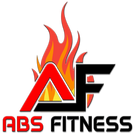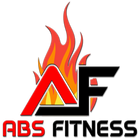What you must know when buying lever belt.
Introduction
Weightlifting Lever Belts are one of the most important pieces of equipment you can use to increase your performance and overall safety while lifting heavy weights. A weightlifting Lever Belt will help support your back, reduce injury risk, and provide extra power during lifts.
If you are into powerlifting, then you must be familiar with the lever belt. It is one of the most important accessories for weightlifting and powerlifting. The best lever belt should provide maximum support, built to last and it should be comfortable.
Top 3 Considerations for Choosing A Weightlifting Lever Belt
- Support: You want to make sure that the belt gives you enough support and keeps the weights from slipping out of place.
- Comfort: A belt has to be comfortable for you to wear, otherwise, it won't be able to hold up all your weightlifting equipment!
- Stiffness: If it's too flexible then there will be no support at all. Make sure that it's stiff enough to hold in place but not so hard that it hurts your body when wearing it during exercise routines (especially if they're long).
What does the lever belt do?
Lever belt is a tool for powerlifting, weightlifting, deadlift, bench press and squats. It has several different uses and can be used by anyone who lifts weights.
The lever belt helps to lift more because it allows you to keep your back straight while lifting heavy weight. This support helps you maintain proper form while lifting heavy weights which in turn prevents injury and allows you to lift more weight safely!
The leverbelt is designed specifically to give maximum support during all of these types of lifts by compressing the abdominal area while supporting the lower back at all times!
How tight do you need to wear a lever belt?
- The lever belt should be tight enough that it stays in place. If it is too loose, you may have trouble breathing and your lower back support may not be as effective.
- You should also make sure the lever belt fits comfortably around your stomach and does not dig into the skin. This can cause redness or chafing after long periods of wear.
Consider the difference between strength and power.
When you're looking for a lever belt, it's important to know the difference between strength and power. Strength is the maximum amount of force you can exert over a period of time. Power is the maximum amount of force you can exert in a short period of time.
Strength is the ability to exert force against an external resistance. For example, if you push-up on your palms with all your might, how long will it take before your arms hurt? This is an example of strength—or how much weight they can hold up and carry around with them!
The price of a good lever belt.
The price of a good lever belt is between $50 and $100. The more expensive ones are better quality most of the time, but they might be overkill if you're just going to use it for casual training. The price depends on the brand, material and features. Some of them come with a lifetime warranty as well like our ABS FITNESS Lever Belt.
Choose a quality that lasts.
- Choose a quality that lasts, Our ABS FITNESS 10mm Lever Belts are proven and tested.
- As you know, lever belts are built to last and can be used for many years. Your belt is made of high-quality materials, such as leather and metal. Our ABS FITNESS 10mm Lever Belt is made of Cowhide leather, this means that it won’t break or fall apart on you anytime soon!
Consider the durability and hardness of the leather thickness.
You should know the leather thickness, hardness, and durability of the belt.
The main reason to consider these factors is that if you buy a lever belt with low quality of leather, it will not last for long. The best way to choose a good lever belt is by looking at the strength of its material. The material should be strong enough to hold your weight comfortably without breaking apart easily. It should also be durable so that it can withstand daily use and tear and wear over time without losing its shape or tearing at any point in time during usage (which would certainly affect its appearance).
Make sure of the lever belt quality and fit when buying one
If you are in the market for a lever belt, here are some things to consider.
- Check the quality of the leather: The quality of the leather is essential to a good-looking and long lasting belt. It should be supple, smooth and soft with no blemishes or creases on it.
- Check the stitching: You don’t want your lever belt to fall apart after only wearing it once or twice! Make sure that all of your stitches are secure and holding up well before purchasing one so you can get years out of this product instead of just a few months like so many other people do who don’t check their products thoroughly before buying them at random stores where they could care less about what happens after they sell something off their shelves which is why we suggest shopping online instead because there are more regulations that govern how businesses operate which means better quality assurance from start (when making things) to finish (when selling said items).

What is the best leverbelt for weightlifting?
What is the best lever belt for weightlifting?
If you are looking for the best lever belt for weightlifting, then it is important to know what you should look for. When buying a lever belt, there are many factors that need to be considered before making your final decision.
It’s important to know how much weight you want to lift when choosing a Lever Belt. The more weight you can lift with your belt on will give you more support and help keep everything in place while training or competing in powerlifting competitions.
When buying a piece of equipment such as this one, it’s important not only to look at its quality but also its price tag so that it doesn't break your bank account!
There are different types of lever belts and you should choose the right one that suits your needs.
There are different types of lever belts and you should choose the right one that suits your needs.
- Lever belt for powerlifting: The lever belt is designed to support the weight of your back while squatting, bending or lifting heavy weights. This type of belt has a stiffer material than other belts because it has less flexibility and can be used in heavier workouts.
- Lever belt for weightlifting: This type of lever belt is great for Olympic-style lifts such as clean and jerk, snatch etc., where you need support in your lower back during explosive movements like squats or pulls with heavy loads. It's also perfect if you're going to do CrossFit workouts as well since this type of movement requires greater mobility than bench press or deadlift exercises
Maximum support.
What makes the lever belt stand out from other belts is that it provides maximum support for your back, core and abs. This means that you can lift with confidence knowing that your lower back will always be protected. Not only will this give you peace of mind in the gym but it also helps to prevent injury during high intensity workouts.
Built to last.
Lever belts are built to last. The lever belt is made of high-quality nylon and polyester, which are durable materials that can withstand the stress of weightlifting. They’re also strong enough to hold up your pants while you lift weights, so there’s no need for you to worry about how long your lever belt will last.
If you want a long-lasting product that won't break down after just a couple of months (or even less), then get yourself a good lever belt!. Our 10mm lever belt is made of cowhide leather and this is proven to last lifetime!

Conclusion
You should be able to find the best lever belt for your powerlifting needs. The market is flooded with many types of belts but not all are good enough. Check out our review section and get more information on the belt before making a purchase.
Buying a weightlifting belt is not as complicated as it may seem. With the right information and some time spent shopping, you can find the perfect belt for your needs. We hope this article helped you make a decision about which type of belt would work best in your situation. Happy lifting!




